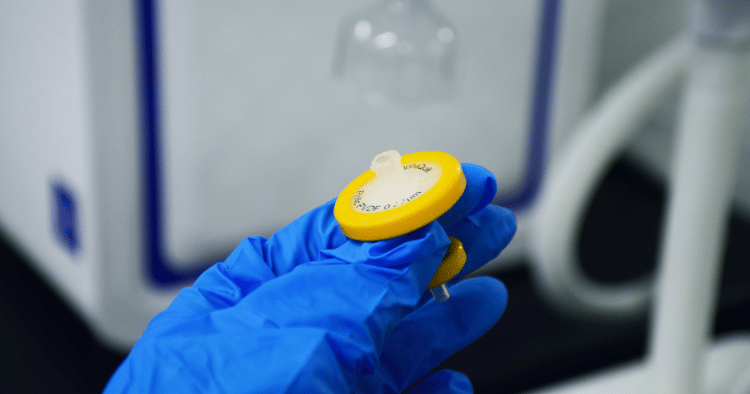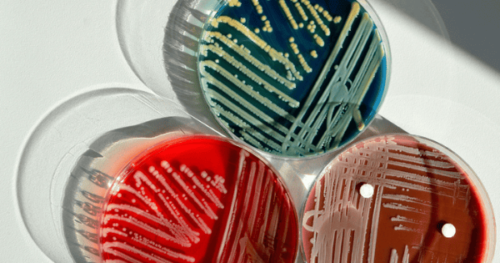Sample purity in laboratory settings is essential for precise and trustworthy outcomes. Experiments may be compromised by contaminants, which could result in inaccurate data and expensive mistakes. Syringe filters are crucial instruments for guaranteeing sample purity and preserving the accuracy of studies in a range of applications. This article examines the significance of syringe filters in laboratory processes and their vital role in preserving sample purity.
What are Syringe Filters?
1. Basic Definition
Syringe filters are single-use, disposable filters that attach to the end of a syringe. They are used to remove particles and contaminants from liquids before analysis.
- Components: Typically consist of a housing and a membrane filter.
- Variety: Available in various sizes, pore sizes, and membrane materials to suit different applications.
How Syringe Filters Ensure Sample Purity
2. Filtration Process
The primary function of syringe filters is to remove unwanted particles from a sample. This process involves:
- Pre-Filtration: The liquid sample is drawn into the syringe.
- Filtration: The sample is pushed through the filter, which captures particles and contaminants.
- Post-Filtration: The purified sample is collected for analysis.
3. Types of Contaminants Removed
Syringe filters are effective at removing a range of contaminants, including:
- Particulates: Dust, dirt, and other solid particles.
- Microorganisms: Bacteria, fungi, and other microorganisms that can contaminate samples.
- Chemical Impurities: Certain chemical contaminants that may interfere with analytical results.
Applications in Laboratory Settings
4. Chromatography
In chromatography, sample purity is vital for accurate separation and analysis. Syringe filters help by removing particles that could clog the chromatography column.
- High-Performance Liquid Chromatography (HPLC): Ensures that the mobile phase and samples are free from particulates.
- Gas Chromatography (GC): Protects the column and improves the accuracy of the results.
5. Microbiology
In microbiological studies, preventing contamination is crucial. Syringe filters are used to sterilize solutions and remove bacteria and other microorganisms.
- Sample Preparation: Ensures that samples are free from contaminants before analysis.
- Media Filtration: Sterilizes culture media to prevent the introduction of unwanted microorganisms.
6. Pharmaceuticals
In pharmaceutical applications, syringe filters ensure that solutions and compounds are free from particulates and contaminants.
- Drug Development: Maintains the purity of compounds and solutions used in drug formulation.
- Quality Control: Ensures that final products meet purity standards before distribution.
Choosing the Right Syringe Filter
7. Membrane Material
The choice of membrane material is crucial for the filter’s performance and compatibility with the sample.
- Nylon: Suitable for aqueous and organic solvent samples.
- PTFE (Polytetrafluoroethylene): Ideal for aggressive solvents and strong acids.
- PES (Polyethersulfone): Excellent for aqueous solutions and biological samples.
8. Pore Size
Selecting the appropriate pore size ensures the effective removal of contaminants without clogging.
- 0.2 Micron: Commonly used for sterilization and removal of bacteria.
- 0.45 Micron: Suitable for general filtration to remove larger particles.
9. Diameter
The diameter of the syringe filter affects the flow rate and volume capacity.
- 13mm: Suitable for small volumes.
- 25mm: Ideal for larger volumes and higher flow rates.
Best Practices for Using Syringe Filters
10. Proper Technique
Using the correct technique ensures effective filtration and prevents contamination.
- Avoid Touching the Membrane: Handle the filter by the edges to prevent contamination.
- Use Appropriate Pressure: Apply steady pressure to avoid damaging the filter or forcing contaminants through.
11. Pre-Use Inspection
Inspect the filter before use to ensure there are no defects or damage that could compromise its performance.
- Check for Integrity: Ensure the filter housing and membrane are intact.
- Verify Compatibility: Confirm that the filter is suitable for the sample and solvent.
Conclusion
Syringe filters are indispensable tools in laboratory settings, playing a critical role in ensuring sample purity and the accuracy of analytical results. By effectively removing particulates, microorganisms, and chemical impurities, these filters help maintain the integrity of experiments across various applications. Choosing the right syringe filter and using it correctly is essential for achieving reliable and reproducible results. Partnering with a trusted supplier like GVS ensures access to high-quality syringe filters that meet the stringent demands of modern laboratories.



